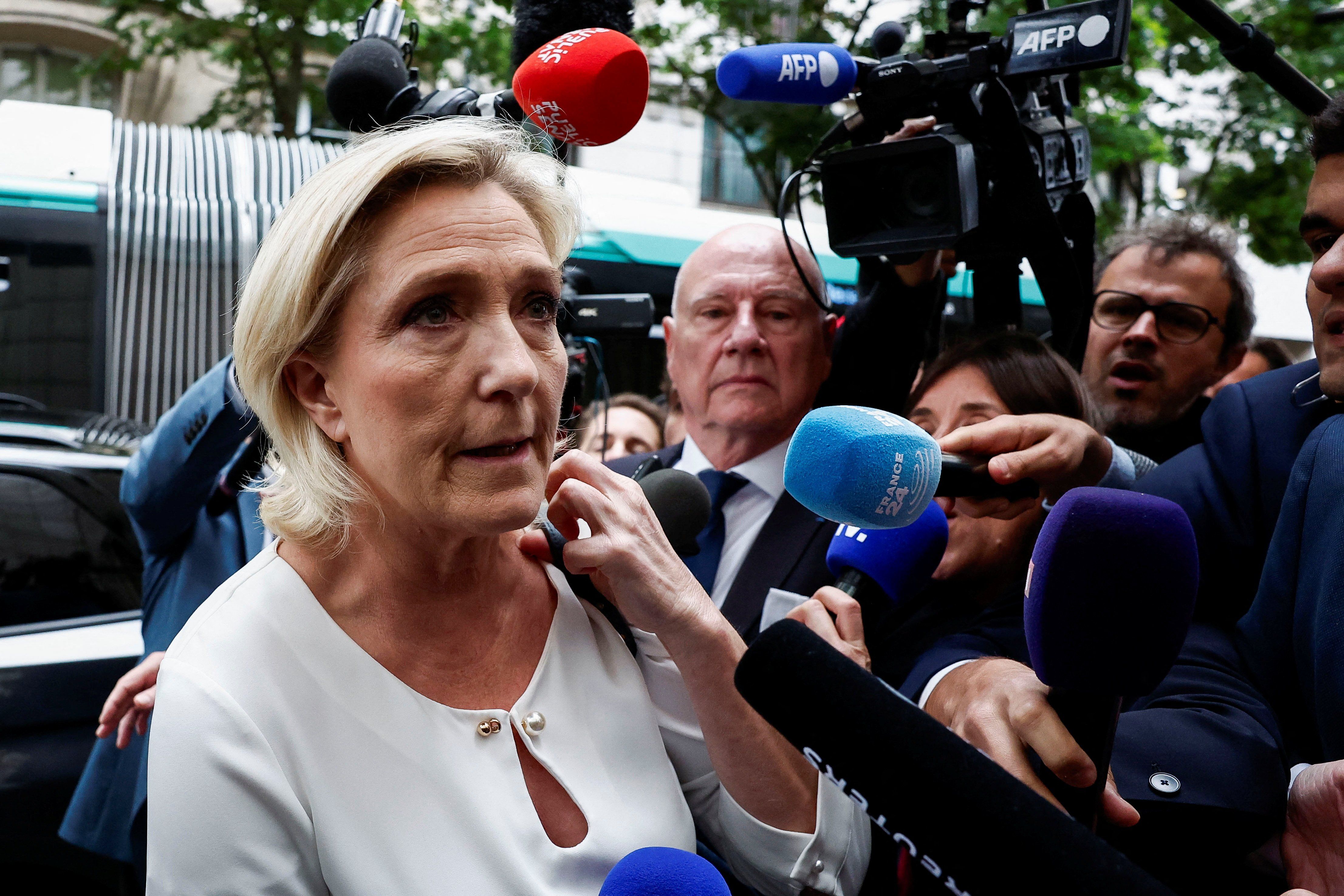National Rally seeks allies as French legislative elections head into round two
As France prepares for its second round of legislative elections this Sunday, Marine Le Pen’s far-right National Rally, aka RN, party has announced that even if it falls short of an outright majority, it will attempt to form a majority government by drawing allies from the conservative Republicans party for parliamentary backing.
The announcement comes after the RN beat President Emmanuel Macron’s centrist coalition in the first round. It’s expected to prevail – if narrowly – again on Sunday.
“It's not a change in direction because she is still saying they won’t form a minority government,” says Eurasia Group’s Europe director Mujtaba Rahman. “But she is saying that if they come close they will try to pull allies over from the hard right of the Les Républicains and then form a majoritarian government.”
It remains unclear, however, whether she and Jordan Bardella, the party’s chief and candidate for prime minister, will succeed. Éric Ciotti, the then-leader of the Republicans, caused outrage and was forced to leave the party last month when he teamed up with the RN.
In a bid to deprive the far right of a 289-seat majority, Macron’s alliance is working on pulling some of its third-place candidates ahead of Sunday’s run-off, and the left-wing New Popular Front has said it will pull all of its candidates. So far, 202 have dropped out – 127 from left-wing parties and 75 from Macron’s centrists.
If Le Pen’s RN succeeds in winning friends from other parties after the second-round vote Sunday, it would further normalize the far right in French politics and could usher in a far-right government in France’s parliament.
Le Pen’s already making post-election plans. Members of her party in the European Parliament’s Identity and Democracy group plan to meet with EU allies next Monday to discuss the future of the far right Europe-wide. Many are considering whether to join a new populist alliance announced this week by Hungary’s Prime Minister Viktor Orban.
